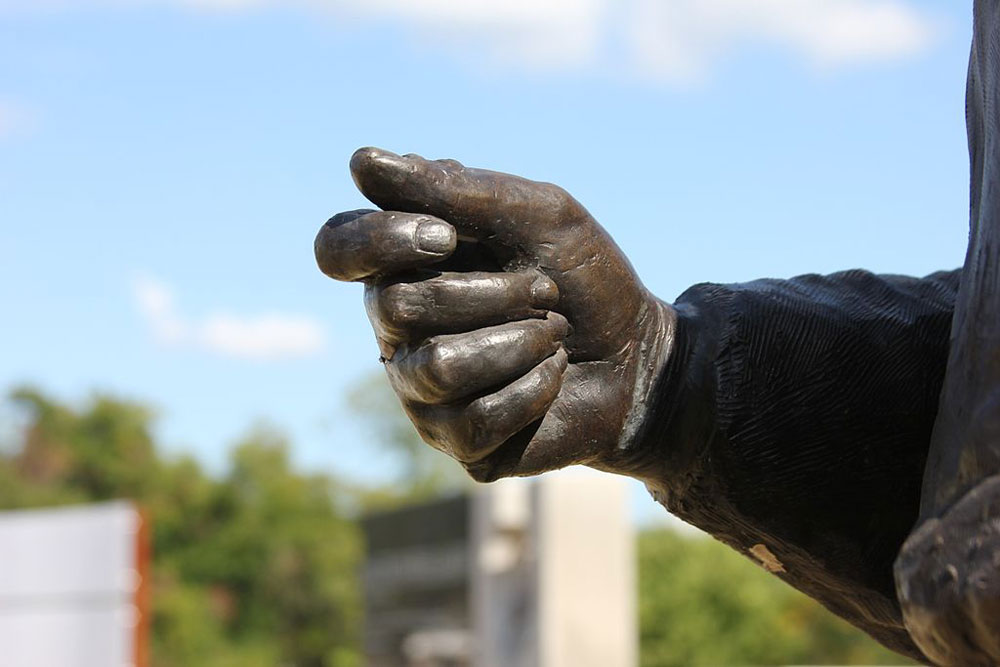
June 19, 2020; National Public Radio, Washington Post, and ABC News
Today is Juneteenth, a holiday that marks the arrival of Union troops to Galveston, Texas, ending slavery in that city. The day became an official state holiday in Texas in 1980. It is “recognized” in nearly all states, but only Texans have celebrated it as an official state holiday. Until now.
In the wake of the needless police murder of George Floyd and so many other instances of anti-Black violence, leading to a national uprising seen in the streets of hundreds of US cities and towns, Juneteenth is getting far broader attention from state and local government, as well as corporations.
Marisa Peñaloza of National Public Radio points out that African Americans have long celebrated Juneteenth with “family gatherings, cookouts, storytelling about their ancestors, music and dance.” But until 2020, the day had largely been ignored in the US outside the Black community.
This year, that is changing rapidly. For instance, Peñaloza reports that, “This week, Virginia Governor Ralph Northam announced that he would make Juneteenth a paid state holiday, and the city council in Portland, Oregon, is making June 19 a paid holiday for city employees. New York Gov. Andrew Cuomo also signed an executive order to make Juneteenth a paid holiday for all state employees.”
Many corporations have made Juneteenth a paid holiday for staff, too, including the National Football League, JC Penney’s, Nike, Target, and Twitter, to name a few.
There are still many myths about the holiday. For instance, Peñaloza writes that Union soldiers “brought news that slavery had been abolished more than two years earlier.” Well, that’s not true. At the time of President Abraham Lincoln’s Emancipation Proclamation, Texas was not part of the United States, it was part of the Confederate States of America.
Sign up for our free newsletters
Subscribe to NPQ's newsletters to have our top stories delivered directly to your inbox.
By signing up, you agree to our privacy policy and terms of use, and to receive messages from NPQ and our partners.
We forget that the Emancipation Proclamation was a promise to free slaves in states that the Union reconquered, and in fact did not even apply within slave states like Kentucky and Delaware that had not seceded from the Union. Robert E. Lee didn’t surrender the Army of Northern Virginia to the Union until April 9, 1865, and hostilities continued in some areas of the Confederacy even after that.
But of course, Americans tend to glide over such historical details. In fact, legal slavery in the US actually wasn’t abolished until the 13th Amendment was adopted to the US Constitution, six months after Juneteenth on December 18, 1865.
As Afi-Odelia Scruggs in the Washington Post mentions, the common suggestion that Texas slaves did not know about emancipation until Union troops arrived on June 19th is also incorrect. As Scruggs points out, “The real reason people were still in bondage when Union troops arrived is because of local leaders….Lincoln’s directive was enforced only when federal soldiers got to Texas much later. Houston was emancipated on June 20; Austin wasn’t liberated until June 23.”
And speaking of historical amnesia, many white Americans are just waking up to the fact that there is a Juneteenth holiday. Gwen Ragsdale, executive director of the Lest We Forget Slavery Museum in Philadelphia, reminds Peñaloza that “many whites don’t know” about Juneteenth, because the holiday’s existence is often not taught in schools.
What Juneteenth does do is celebrate freedom while emphasizing that the struggle for liberation is ongoing—and that resistance, often fierce, must be overcome. This is, of course, as true today as in 1865, as the police murder of George Floyd reminds us.
Today, there is a movement afoot to make Juneteenth an official national holiday. While holidays often become commercialized, if we can make the holiday one where we celebrate liberation from our nation’s slavery past, focus on the ongoing struggles, and consider how we might build a freer and more equitable society, then this would be a holiday well worth having.—Steve Dubb










